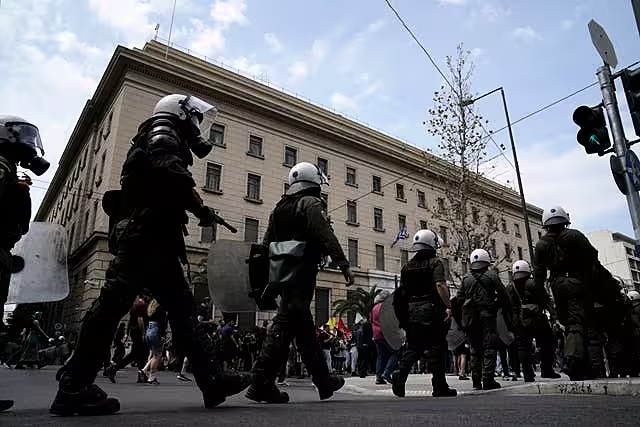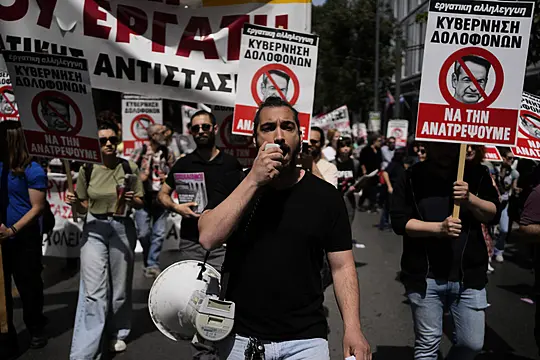Strikes called by Greece’s largest labour union halted ferries, disrupted public transport services and left some state-run hospitals running on emergency staffing levels in Athens and elsewhere on Wednesday.
The General Confederation of Greek Labour (GSEE) led the strikes to press for a return of collective bargaining rights axed more than a decade ago during a severe financial crisis.
Several thousand protesters, chanting “Our rights are not Utopia”, attended a demonstration in central Athens which ended peacefully.

Public park workers also joined the strike and protests, along with food delivery drivers who rode past Parliament on motorbikes, holding up red smoke flares.
Police said some 4,000 protesters joined a rally in Greece’s second-largest city, Thessaloniki, on Wednesday.
The 24-hour strikes also disrupted national rail services, though flights at Greek airports were not affected.
Greece has returned to robust economic growth and an investment-grade sovereign bond rating following a series of international bailouts and a severe recession during the 2010-18 crisis.
But unions argue that many labour rights removed as a temporary measure during the bailout-era have not been restored.
Since the crisis, Greece’s minimum wage is set by the government and not through negotiations between unions and employers.

“We were told during the bailouts that the (measures) would only last for a few years until Greece gets back on its feet. That’s not what’s happening now,” GSEE leader Yiannis Panagopoulos told a news conference ahead of the strike.
“Restoring labour laws, collective and individual working rights, costs nothing. And it gives us the tools to seek fair pay,” he added.
Collective bargaining and the right to strike are protected under the Charter of Fundamental Rights of the European Union. But labour associations in Europe say the way that unions can negotiate pay wage deals has been limited in Greece and other member states affected by the financial crisis.







